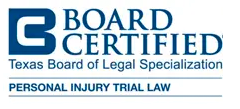Hospital Liens and Their Impact on Personal Injury Claims

Hospital liens are a critical aspect of the healthcare industry that can significantly affect personal injury claims. When individuals sustain injuries due to someone else's negligence, they often seek medical treatment at hospitals and medical facilities. The costs associated with medical care can be substantial.
In this article, the personal injury lawyers at Wham & Rogers explore the concept of hospital liens, how they function, and the impact they have on personal injury claims. If you have questions about a hospital lien or a personal injury matter, call our Spring personal injury team at (832) 592-1108.
Understanding Hospital Liens
A hospital lien is a legal claim filed by a medical facility against any potential settlement or judgment that an injured person may receive in a personal injury lawsuit. These liens allow hospitals and medical providers to assert their right to be compensated for the medical services they provided to the injured individual.
Hospital liens are typically put in place to protect medical providers from not being paid in cases where the patient lacks health insurance or adequate funds to cover the medical expenses. These liens function as a security interest, granting the medical provider a right to a portion of the injured party's settlement or judgment. This means that if the injured person successfully recovers compensation for their injuries, the medical provider can recover their expenses directly from the settlement proceeds before the injured party receives any money.
How Hospitals File Liens
In order to file a hospital lien, the hospital must first provide the patient with written notice of its intent to do so. The notice must include the amount of the lien and the basis for the lien. The patient then has a certain amount of time to object to the lien.
If the patient does not object to the lien, it will become a valid debt against the patient's personal injury settlement. This means that the hospital will be entitled to be paid a portion of the settlement before the patient receives any money.
Impact on Personal Injury Claims
Now let’s take a look at how hospital liens could impact a personal injury claim.
Negotiation and Settlements
Hospital liens can significantly impact negotiations and settlements in personal injury claims. When an insurance company or at-fault party is aware of an existing hospital lien, they may be less willing to offer a settlement, as they know a portion of the funds will go directly to the medical provider. This can lead to prolonged negotiations and potentially lower settlement amounts for the injured party, making it essential for the injured individual and their attorney to navigate this aspect carefully.
Priority of Payment
Hospital liens typically take precedence over other liens and claims against the settlement amount. This means that medical providers with hospital liens will receive their payment before any other parties, including the injured person themselves, their attorney, or other lien holders. As a result, the injured individual may receive a reduced amount or no settlement at all if the hospital lien exhausts the available funds.
Limited Access to Medical Records
In some cases, hospital liens can lead to limited access to medical records for the injured person's attorney, making it challenging to assess the full extent of damages and determine the appropriate compensation. Some medical providers may be hesitant to share medical records or may only provide them once the lien has been satisfied.
Lien Negotiations
To protect their client's interests, personal injury attorneys often engage in lien negotiations with medical providers. They may attempt to negotiate lower lien amounts or advocate for a reduction in the lien based on various factors, such as:
- The severity of the injuries
- Comparative negligence
- Insurance coverage
These negotiations can be complex and time-consuming, adding to the overall complexity of the personal injury claim.
State-Specific Regulations
It is crucial to note that the impact of hospital liens on personal injury claims can vary significantly depending on state-specific regulations. Some states have laws that limit the amount a hospital can recover through a lien, while others may not allow hospital liens at all. Understanding the laws in the relevant jurisdiction is vital for both injured parties and their legal representation.
Things to Remember about Hospital Liens
There are a few things that patients should keep in mind about hospital liens.
- First, patients should be aware that they may be subject to a hospital lien even if they have health insurance. This is because health insurance companies often pay less than the full cost of medical care. As a result, the hospital may still be owed money even after the insurance company has paid its portion of the bill.
- Second, patients should be aware that they can negotiate with the hospital to reduce the amount of the lien. In some cases, the hospital may be willing to accept a lower amount in order to avoid the time and expense of collecting the full amount of the lien.
- Finally, patients should be aware that they may be able to challenge the validity of a hospital lien. This is typically done if the hospital did not provide the patient with proper notice of the lien or if the lien is for an amount that is excessive.
Hospital liens can play a major role in personal injury claims, affecting negotiations, settlements, and the priority of payment. It is crucial for individuals involved in personal injury claims to be aware of their rights and consult with experienced lawyers who can navigate the complexities of hospital liens to secure fair compensation for their clients.
Get Help with Your Personal Injury Claim
If you have been injured in an accident and have received a hospital lien, contact the personal injury lawyers at Wham & Rogers as soon as possible. Our lawyers can help you understand the lien and your options for negotiation with the hospital. In many cases, we are able to successfully reduce the amount of the lien or challenge its validity.
To find out more about your rights and options, call us for a free consultation at (832) 592-1108, or complete our online contact form.




The information on this website is for general information purposes only. None of the information on this site should be taken as legal advice for any individual case or situation. This information is not intended to create, and receipt or viewing does not constitute, an attorney-client relationship.

















